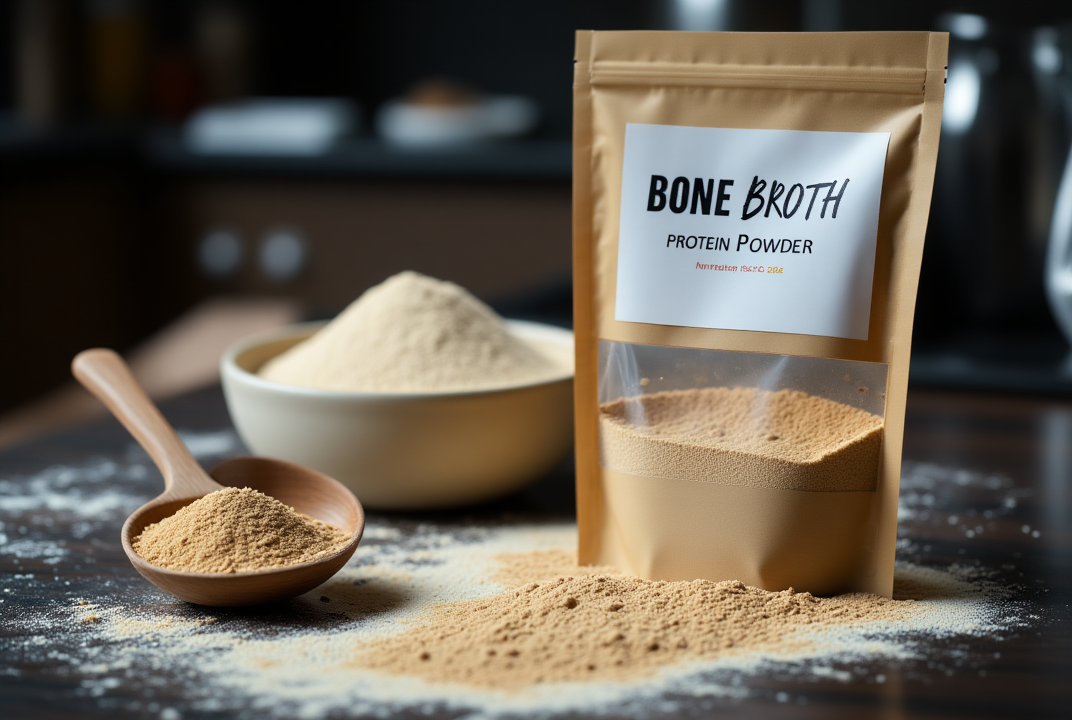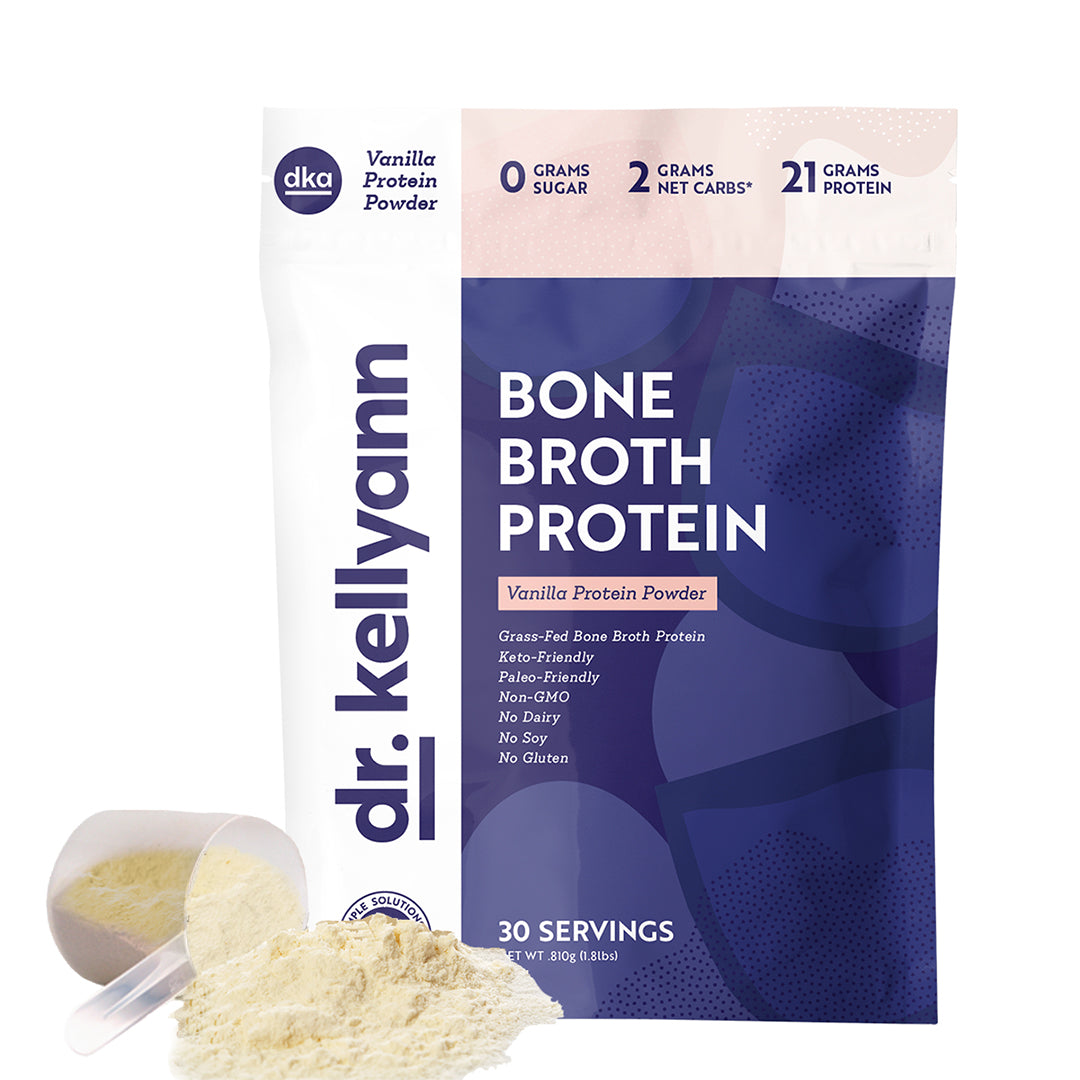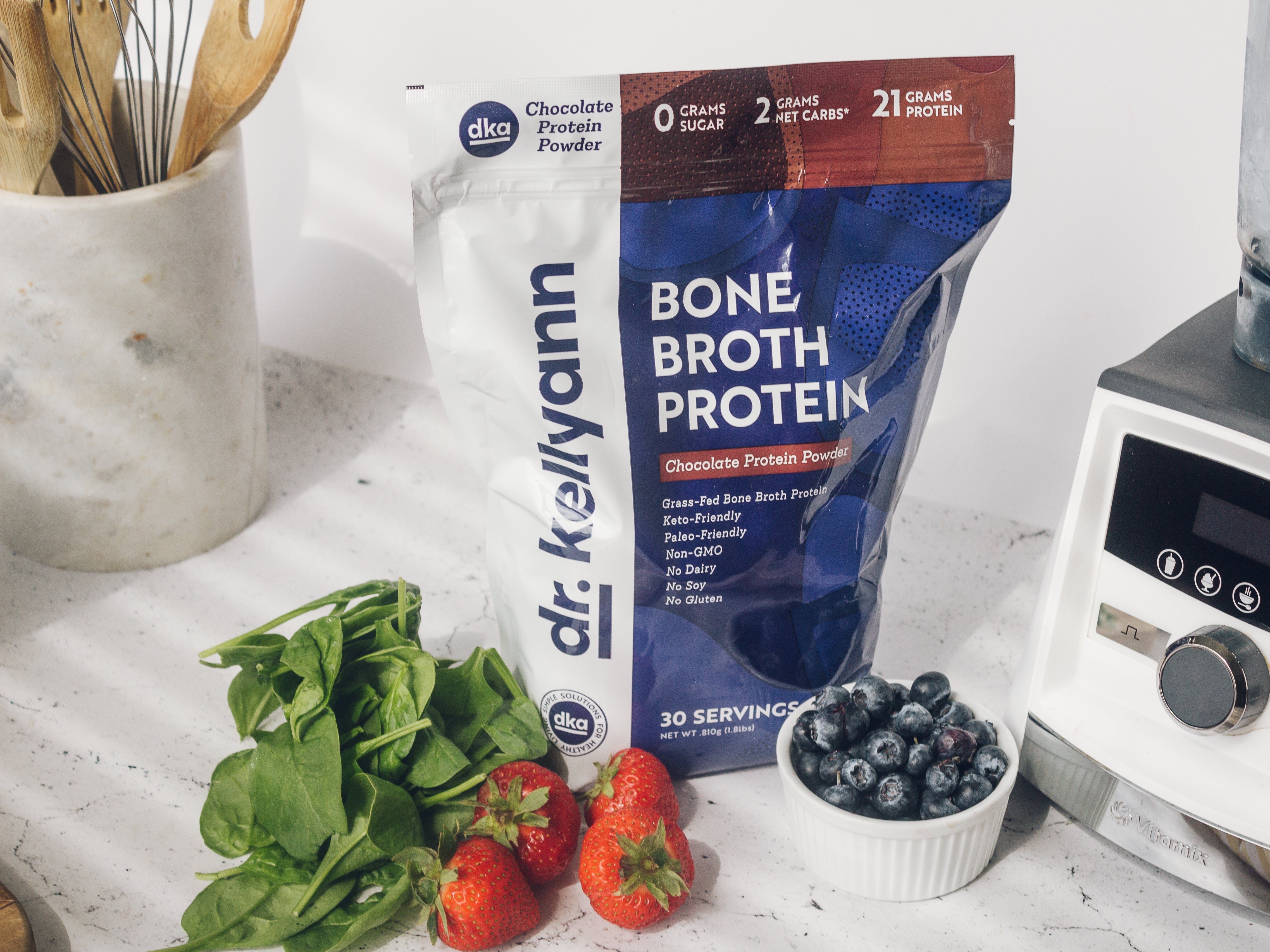
As the demand for high-quality protein supplements grows, many health-conscious individuals are weighing the merits of bone broth protein powder versus traditional whey. While both options support muscle building and recovery, their unique ingredients and health benefits cater to distinct needs and preferences. From athletes seeking optimal performance to those with sensitive stomachs or specific dietary goals, exploring the differences between bone broth protein powder and whey can empower you to select the best protein source for your journey.
What Is Bone Broth Protein Powder?
Bone broth protein powder is a concentrated supplement made by simmering animal bones and connective tissues—typically from chicken or beef—to extract beneficial nutrients like collagen, gelatin, amino acids, and minerals. The resulting broth is then dehydrated into a convenient powder form, preserving its rich nutritional profile while making it easy to mix into shakes, smoothies, or recipes. Unlike traditional protein powders, bone broth protein offers additional benefits for joint health, gut integrity, and skin elasticity, making it a popular choice for those seeking a holistic, food-based protein source that’s free from dairy, gluten, and common allergens.
What Is Whey Protein Powder?
Whey protein powder is a highly popular supplement derived from the liquid byproduct of cheese production. After separating the whey from the curds, it’s filtered, purified, and dried into a fine powder that’s rich in complete proteins and essential amino acids, particularly leucine, which is crucial for muscle growth and recovery. Whey protein is quickly absorbed by the body, making it a favorite among athletes and fitness enthusiasts for post-workout nutrition. While it’s an efficient and effective protein source, it does contain dairy and lactose, which may cause digestive discomfort for some individuals with sensitivities or intolerances.

Bone Broth Protein Powder vs Whey: What’s The Difference?
Source and Ingredients
- Bone Broth Protein Powder: Made from simmered animal bones and connective tissues, typically chicken or beef, then dehydrated into powder. Contains collagen, gelatin, amino acids, and minerals.
- Whey Protein Powder: Derived from the liquid byproduct of cheese-making. Contains complete proteins and all essential amino acids, especially high in branched-chain amino acids (BCAAs).
Nutritional Profile
- Bone Broth Protein Powder: Rich in collagen and gelatin, supports joint, gut, and skin health. Lower in BCAAs compared to whey.
- Whey Protein Powder: High in protein content and BCAAs, ideal for muscle growth and recovery. Minimal collagen or gelatin.
Digestibility and Allergens
- Bone Broth Protein Powder: Naturally free from dairy, gluten, and common allergens. Easier to digest for those with sensitive stomachs or lactose intolerance.
- Whey Protein Powder: Contains dairy and lactose, which may cause digestive issues for some individuals.
Health Benefits
- Bone Broth Protein Powder: Supports joint health, gut lining, skin elasticity, and may reduce inflammation due to its collagen content.
- Whey Protein Powder: Promotes rapid muscle repair, supports lean muscle mass, and aids in post-workout recovery.
Suitability for Diets
- Bone Broth Protein Powder: Compatible with Paleo, Keto, and Whole30 diets; ideal for those seeking a clean, food-based protein source.
- Whey Protein Powder: Suitable for most fitness diets but not compliant with strict Paleo, Whole30, or dairy-free protocols.
Taste and Texture
- Bone Broth Protein Powder: Has a savory, mild flavor and can be slightly thicker or more gelatinous when mixed.
- Whey Protein Powder: Typically has a neutral or sweet flavor and mixes smoothly into liquids.
How Much Protein Do You Get Per Serving From Each?
The amount of protein per serving varies between bone broth protein powder and whey protein powder, but generally, whey protein offers a higher protein content. A typical serving of whey protein powder provides around 20–25 grams of protein, making it a highly efficient source for muscle building and recovery. In comparison, bone broth protein powder usually delivers about 15–20 grams of protein per serving, along with additional nutrients like collagen and minerals. While both options support daily protein needs, whey is often preferred for maximizing protein intake, whereas bone broth protein appeals to those seeking a broader spectrum of health benefits beyond just protein content.
Is Bone Broth Protein Easier To Digest Than Whey?
Bone broth protein is generally considered easier to digest than whey, especially for individuals with dairy sensitivities or lactose intolerance. Because it is naturally free from lactose, gluten, and common allergens, bone broth protein is less likely to cause bloating, gas, or digestive discomfort. Additionally, the collagen and gelatin found in bone broth protein can help support gut health by soothing and strengthening the intestinal lining. In contrast, whey protein—while quickly absorbed and effective for muscle recovery—can sometimes lead to digestive issues for those sensitive to dairy or with compromised gut health, making bone broth protein a gentler alternative for many.
Which Is Better For Muscle Building And Post-Workout Recovery?
Whey protein is widely regarded as the superior choice for muscle building and post-workout recovery due to its high concentration of complete proteins and branched-chain amino acids (BCAAs), particularly leucine, which plays a key role in stimulating muscle protein synthesis. Its rapid absorption rate makes it ideal for replenishing muscles immediately after exercise, supporting faster recovery and growth. While bone broth protein does provide a moderate amount of protein along with additional nutrients like collagen for joint and connective tissue support, it lacks the same levels of BCAAs found in whey. For those prioritizing muscle gain and recovery, whey protein is typically the more effective option, though bone broth protein may still benefit those seeking a gentler, more holistic supplement.
Is Bone Broth Protein Paleo- Or Keto-Friendly?
Yes, bone broth protein is both Paleo- and Keto-friendly, making it an excellent choice for individuals following these popular diets. Bone broth protein is derived from simmered animal bones and connective tissues, with no added sugars, grains, or dairy, aligning perfectly with Paleo principles that emphasize whole, unprocessed foods. Its low carbohydrate content and high protein profile also fit seamlessly into the Keto diet, which prioritizes low-carb, high-fat, and moderate-protein intake. As a result, bone broth protein provides a clean, nutrient-dense supplement option for those seeking to maintain ketosis or adhere to Paleo guidelines while supporting muscle health, joint function, and overall wellness.
Which Protein Powder Mixes Better In Smoothies Or Recipes?
Whey protein powder is generally known for its superior mixability in smoothies and recipes, thanks to its fine texture and ability to dissolve easily in both cold and hot liquids. It creates a smooth, creamy consistency without clumping, making it a favorite for shakes, baked goods, and even protein-packed pancakes. Bone broth protein powder, on the other hand, tends to have a slightly thicker, sometimes gelatinous texture due to its collagen content, and may require more blending to achieve a smooth result. While both can be incorporated into a variety of recipes, whey protein typically offers a more seamless and versatile mixing experience, especially for those who prioritize texture and convenience.

Tips For Choosing Between Bone Broth Protein Powder vs Whey
- Consider Your Dietary Restrictions: If you have lactose intolerance, dairy sensitivities, or follow Paleo, Keto, or Whole30 diets, bone broth protein is a better fit, while whey is ideal for those without dairy concerns.
- Assess Your Fitness Goals: For rapid muscle building and post-workout recovery, whey protein’s high BCAA content is advantageous; for joint, gut, and skin health, bone broth protein offers unique benefits.
- Evaluate Digestibility: Choose bone broth protein if you have a sensitive stomach or experience digestive discomfort with traditional protein powders, as it’s gentler and free from common allergens.
- Think About Taste and Texture: Whey protein mixes smoothly and has a neutral or sweet flavor, making it versatile for shakes and recipes, while bone broth protein has a savory taste and thicker texture.
- Review Ingredient Quality: Look for clean, minimally processed options with no artificial additives, and prioritize products that align with your health values and ingredient preferences.
Conclusion
Choosing between bone broth protein powder and whey ultimately depends on your individual health goals, dietary needs, and personal preferences. Whey protein stands out for its high protein content and rapid absorption, making it the go-to option for muscle building and post-workout recovery. In contrast, bone broth protein offers a holistic approach, supporting joint, gut, and skin health while being gentle on digestion and suitable for a variety of clean-eating lifestyles. By understanding the unique benefits of each, you can confidently select the protein supplement that best aligns with your wellness journey and helps you achieve your optimal health.
Final Thoughts
Curious about which protein source can best support your healthy lifestyle? Discover Dr. Kellyann’s bestsellers, including flavorful varieties like chicken, beef, and french onion—all free from GMOs and added sugars. These convenient broths are a delicious way to nourish your gut and fuel your day. Head over to Dr. Kellyann’s to explore the collection and choose your favorite flavor.
Sources
- https://www.eatingwell.com/article/7940039/what-is-whey-protein-according-to-a-dietitian/
- https://naturalforce.com/blogs/nutrition/bone-broth-protein-powder-benefits
- https://www.goodrx.com/well-being/supplements-herbs/best-supplements-for-muscle-recovery




